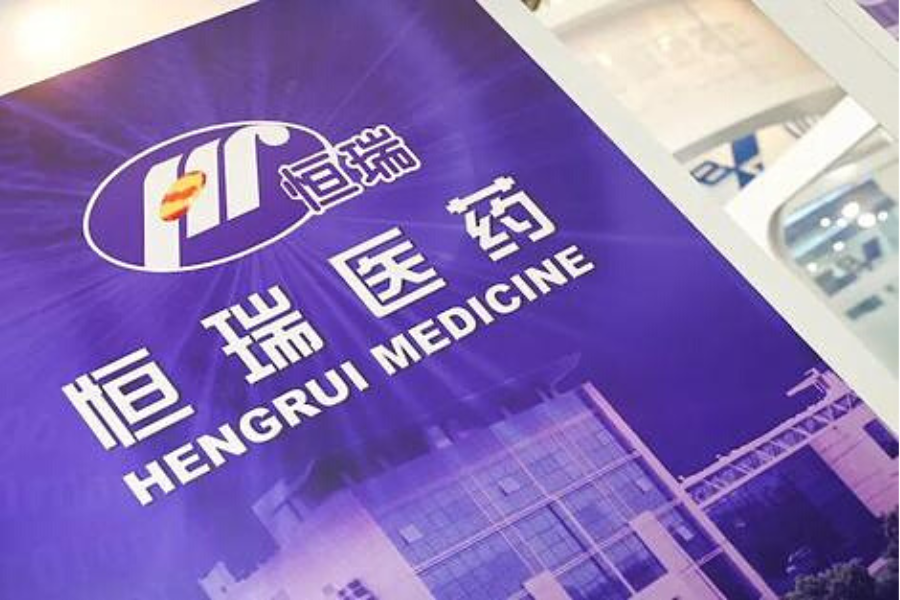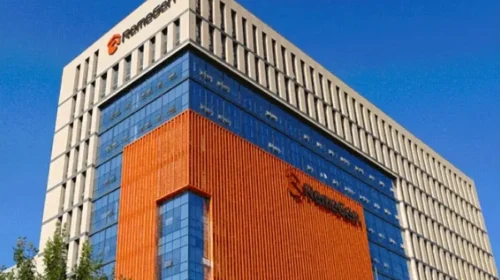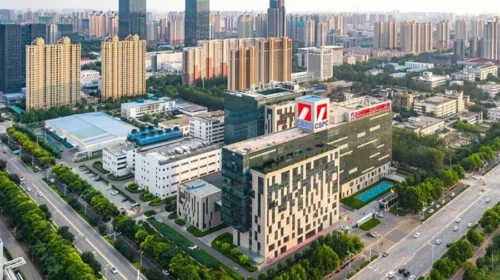Is Former CStone Chairman the Medicine Ailing Hengrui Needs?

Hengrui Medicine started the New Year by naming CStone’s previous top official Jiang Ningjun as its new vice general manager and chief strategy officer.
Key Takeaways:
- Hengrui Pharma has named the former top executive of the smaller CStone as its new chief strategy officer, hoping he can help to reverse its recent decline
- The company has lost four vice general managers since last year, and its stock is down nearly 60% from its high at the end of 2020.
By Molly Wen
2022 was a year that pharmaceutical giant Jiangsu Hengrui Medicine Co. Ltd. (600276.SH) would probably rather forget. Its management underwent a major shakeup, leaving its revenue, profit and investor confidence in tatters as its stock fell to a four-and-half-year low.
Seeking medicine to reverse its decline, the company unveiled a heavyweight executive move on Jan. 2 with the announcement that Jiang Ningjun, co-founder and former chairman and CEO of CStone Pharmaceuticals (2616.HK), would join as vice general manager and chief strategy officer overseeing clinical trials and business expansion. His arrival creates a triumvirate of Chairman Sun Piaoyang and vice general manager and global development director Zhang Lianshan to lead the company’s corporate strategy and R&D decision-making.
But the market reaction was underwhelming. Hengrui’s stock fell by 0.2% the day after the news broke, then rose by 0.9% the next day, indicating investors may need more time to figure out what Jiang can contribute to the company.
Jiang, 61, is a veteran in medical research and commercialization of new drugs. He worked for 14 years at France’s Sanofi (SAN.PA) as the deputy president of its China clinical research center, president of its Asia-Pacific R&D headquarters and its global vice president.
He co-founded CStone in 2016 and later assumed the position of chairman. The company won approvals for four innovative products in just five years. He also presided over the signing of a strategic cooperation agreement with industry giant Pfizer Inc. (PFE.US), including the transfer of equity holdings for CStone’s PD-L1 products to the U.S. company in exchange for up to $280 million in milestone payments and additional licensing fees.
But he stumbled in 2021, when he gave the nod for CStone vice president of finance Weng Xiaolu to invest the company’s money in fund linked notes (FLNs) issued by CMB International Capital, which later was deemed an irregular investment and resulted in big losses. He was let go late last May and replaced by non-executive director Li Wei.
Transition weighs on performance
Hengrui is going through a rough patch as it transitions from a generic drug producer to developer of its own innovative drugs, which experts believe was a factor behind Jiang’s hiring. In addition to his R&D background, his commercialization skills are also an important asset.
Hengrui is one of China’s older drug makers, founded in 1970. It went public in Shanghai in 2000 with its initial focus on generic chemical drug production. It has taken 11 pharmaceutical products to market since 2011, including anesthetics, as well as drugs to treat cancer, diabetes autoimmune disorders and cardiovascular disease.
But its performance has suffered in the last two years. Its revenue grew in the first half of 2021, but it managed net profit growth of just 0.2% year-on-year for the period. By the fourth quarter that year, its revenue was down 31.4%, while its profit fell 84.4% year-on-year. The woes continued last year as operating revenue fell 21.1% in the first three quarters, and net profit fell by 24.6%.
Much of Hengrui’s slump has been policy-induced. Its core generic drug business, which accounts for 50% to 60% of its revenue, is getting hammered from low prices demanded by China as the country has increasingly used bulk drug procurements since late 2018.
Its interim report last year showed that eight of Hengrui’s drugs participating in the fifth round of bulk procurement, which started in September 2021, generated just 250 million yuan ($36.8 million) in the first half of the year in sales, a year-on-year decline of 88%. Since 2018, 35 of its products have been included in procurement schemes and 22 in bulk procurement, squeezing those drugs’ average price by a massive 74.5%.
Hengrui’s innovative drugs are also facing pressure from discounts demanded by China’s national health plan. It has negotiated new prices for several drugs since last year, resulting in average cuts of 33%. Such discounts have put a damper on revenue growth, which has also took a hit from obstacles to marketing last year resulting from China’s strict Covid-control measures. The company’s important cancer-drug category is also becoming increasingly homogeneous, making it hard to differentiate its drugs from those of its rivals.
Management turbulence
Several major management changes over the last two years haven’t helped Hengrui either. Sun Piaoyang, who led the company for 30 years, returned in August 2021 just one and a half years into his retirement as the company struggled. After his return, he shifted the company’s focus to innovative drug development and overseas marketing. In the first half of last year, the company invested 2.91 billion yuan in drug development, equal to 28.4% of sales.
The loss of several other senior executives has also undermined confidence in the company. Since last year, four vice general managers have left, including the company’s chief medical officer in charge of cancer drug development, who jumped ship just half a year after being promoted.
The company was once a highly sought stock in China’s medical sector, valued at more than 610 billion yuan in December 2020. But steady declines since then have lowered its current value to just 250 billion yuan, down nearly 60% as the stock now trades at lows not seen since July 2018. Even so, the company’s price-to-earnings (P/E) ratio is still quite high at 72 times, much more than the ratios for similar companies like Shenzhen Mindray Bio-Medical (300760.SZ), Wuxi AppTec (2359.HK; 603259.SH) and Shanghai Fosun Pharmaceutical (2196.HK; 600196.SH), which range from 16 times to 40 times. It may command such a high premium because investors still see it as an industry leader.
Soochow Securities pointed out in a recent report that the cloud hanging over Hengrui could soon lift as the company is expected to get approval for six innovative drugs that could bring some wind back into its sales. With that kind of fodder in its cannon, investors will be watching to see whether its new chief strategy officer can help to steer Hengrui’s ship back into more profitable waters.
To subscribe to Bamboo Works weekly free newsletter, click here






